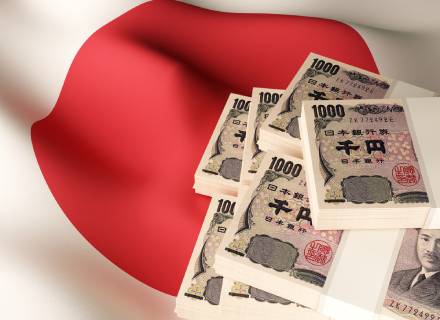Bank of Japan (BOJ) Deputy Governor Ryozo Himino has said that the central bank must be “very vigilant” to observe the yen’s moves, as the latter can leave its impact on the country’s economy, thereby suggesting the currency’s weakness will be among factors affecting the timing of its next interest rate hike.
Ryozo Himino also added that it was inappropriate for central banks to directly target exchange rates in setting monetary policy, as other factors need to be considered as well.
“Exchange-rate fluctuations affect economic activity in various ways. It also affects inflation in a broad-based and sustained way, beyond the direct impact on import prices,” Ryozo Himino remarked.
“That’s why we obviously need to be very vigilant to, and analyse very closely, the impact of exchange-rate volatility on the economy, prices and their outlook,” remarked the BOJ Deputy Governor, during a panel session hosted by Columbia University in Tokyo.
“The BOJ shouldn’t automatically respond to exchange-rate moves in setting interest rates, though, as there were other aspects that need to be taken into account such as the economic and price outlook,” he added further.
Ryozo Himino’s comments came amid the backdrop of a weak Yen that has become a headache for Prime Minister Fumio Kishida’s administration, which has seen its approval ratings slump as the currency’s decline pushed up households’ cost of living by inflating the import cost of food and fuel.
BOJ Governor Kazuo Ueda has ruled out using monetary policy to directly influence exchange-rate moves, but signalled the chance of tightening the monetary policy if the weak Yen pushes up inflation more than expected. The Governor also noted recently that his country has “made progress in moving away from zero and lifting inflation expectations.”
“While many of the challenges we face are similar to those encountered by our counterparts, some are uniquely difficult for us,” the BOJ chief remarked, while also noting that estimating the neutral interest rate accurately is particularly challenging in Japan, given the prolonged period of near-zero short-term interest rates over the past three decades.
In fact, while talking about the task of achieving the 2% inflation target in a sustainable and stable manner, the BOJ Governor also said that the central bank “will proceed cautiously, as do other central banks with inflation-targeting frameworks.”
Many market players expect the BOJ to raise interest rates from current near-zero levels in 2024 with some expecting a move as early as July, partly to slow the yen’s persistent decline.
Asked what the central bank would do with its huge balance sheet, Ryozo Himino said the BOJ would make a decision focusing on how it would affect the economy, prices and its goal of sustainably achieving its 2% inflation target.
“It’s desirable for markets to set long-term interest rates. On the other hand, the BOJ has been deeply involved in the bond market up till very recently and our presence remains very large. We need to avoid causing discontinuity or any unintended moves in the market,” Ryozo Himino remarked further.
Ryozo Himino’s remarks further underscore the tricky balancing act the BOJ faces in allowing market forces to drive long-term interest rates higher, while avoiding an abrupt spike in bond yields.
In March 2024, the BOJ ended eight years of negative interest rates and a policy capping long-term borrowing costs around zero dubbed yield curve control (YCC).
“The decision was partly aimed at breathing life back to a market made dormant by the BOJ’s huge presence, and allowing market forces to drive yield moves. Markets are focusing on whether the BOJ, at its next policy meeting on June 13-14, will move to a full-fledged reduction in its huge bond purchases,” reported Reuters.
The 10-year government bond yield briefly jumped to 1.1% in May 2024, the highest level since July 2011, on growing expectations of a near-term interest rate hike.
Shinichi Uchida, another Deputy Governor of BOJ, recently said that the end of Japan’s battle against persistent deflation is in sight, but acknowledged that anchoring inflation expectations to the 2% target is “a big challenge.”
“Labour market conditions have changed structurally and irreversibly, helping resolve the original causes of deflation such as excess labour supply,” the senior official told the media.
“We returned to a conventional monetary policy framework, aiming at a 2% price stability target through adjustments of the short-term policy rate, which means we have overcome the zero lower bound,” he concluded.

